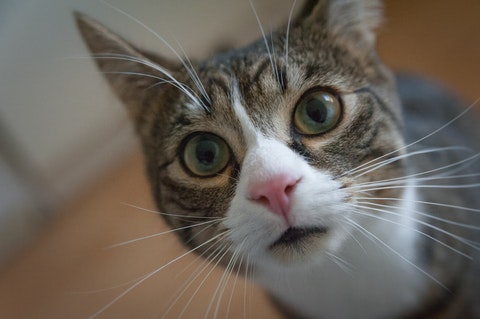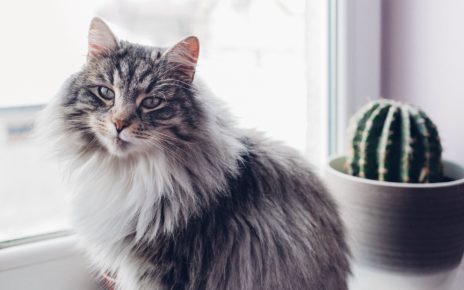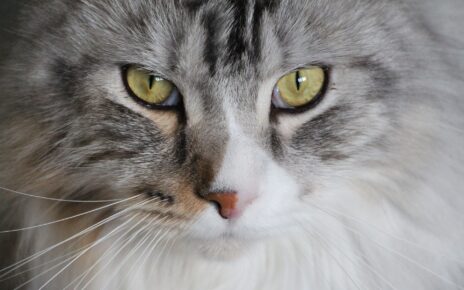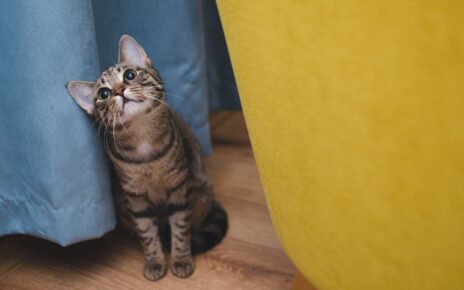Taurine is an amino acid that is vital for the proper function of the cardiovascular system, nervous system, muscles and the retina.
What is Taurine, and how does the body use it?
Taurine plays a key role in muscle health. If any animal is taurine deficient, muscle function will suffer most noticeably in the heart. When a cat or any animal has a taurine deficiency, cardiac arrhythmia and other cardiac irregularities are likely to occur. Skeletal muscles will also become weakened, which can cause a severe reduction in physical activity and strength.
Taurine plays a role in regulating the transmission of signals in the brain, which is mainly due to its ability to cross the blood-brain barrier. Once taurine enters the brain, it can help reduce neuronal excitability. The reduction in neuronal activity can help reduce stress and anxiety, which can be helpful for fearful or aggressive animals.
Taurine also has antioxidant properties that can prevent oxidative stress brought on by toxic substances in the environment. And in some animals studies, taurine has been shown to regulate blood sugar, and also control body weight. Taurine may also play a role in reducing fat deposits in the liver, which can reduce the risk of fatty liver cirrhosis. Taurine is also very important for digestion since it is a major component of bile salts in the intestines.
Why do Cats Need Taurine?
Cats lack the enzyme cysteine dioxygenase that is used to convert the amino acid cysteine into taurine. In most mammals, this enzymatic reaction occurs in the pancreas and can provide taurine to the body even if the animal is fed a diet completely devoid of taurine. Though it is still advisable to feed any animal a diet with sufficient amounts of taurine. This is because the production of taurine in animals other than cats can be limited by a number of factors including genetics and age.
If a cat is fed a diet that lacks sufficient taurine it will not be able to produce any itself, and will slowly start to suffer the effects of taurine deficiency. The reason why it’s very important to be attentive to this is that in the beginning phase of taurine deficiency, very little change will be noticeable. But over time severe degradation of a cats heart, muscles and eyes can occur. Some of these conditions can become irreversible if allowed to go untreated for an extended period of time.
Taurine has been recognized as such an important nutrient in a cats diet. That the Association of American Feed Control Officials (AAFCO) has mandated that any cat food that they approve, should have a minimum taurine content of 0.1% for dry cat food and 0.2% for wet cat food.
What are the symptoms of a Taurine deficiency?
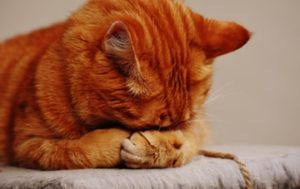
A taurine deficiency can be hard to catch in the early stages, due to the fact that the symptoms can be subtle and only present when the problem has progressed. The symptoms to keep a look out for are lethargy, lack of strength, and visual impairment.
If your cat has slowly become less active or is unable to jump as high as it once did. Don’t write it off to age or personality, these changes might indicate a taurine deficiency. If you see any drastic changes in physical activity, especially in a younger cat. It would be a good idea to seek medical advice if the behavior persists for an extended period of time.
Another sign of a taurine deficiency is the degradation of the retina. This condition if left untreated can lead to irreversible blindness, making it vital to catch early on. If you notice a change in your cat’s ability to recognize objects or see things at distances they once could. These vision related deficits could be an early indicator of retinal degeneration brought on by a taurine deficiency.
One effect of a taurine deficiency that is nearly impossible for an owner to monitor is cardiomyopathy. The best way to keep track of this potential symptom is to bring your cat in for regular veterinary checkups. If you have any concerns that your cat might be taurine deficient. Notify your veterinarian and ask them to check for any signs of cardiomyopathy during an exam.
Are there any meats high in taurine?

Meat from land animals contains a good amount of taurine, with a 3 ounce serving of beef steak containing 55mg of taurine. But the richest sources of taurine are the organ meats. In comparison, a pound of beef liver contains about 1 gram of taurine, while chicken liver has a little over 3.2 grams of taurine per pound. If you are looking to add a good source of taurine to your cat’s diet, feed them organ meat instead of muscle meat.
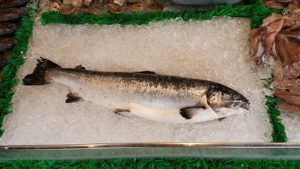
Seafood such as fish and crab have very high levels of taurine. Salmon filets contain about 2 grams of taurine per pound. And mackerel has about 4.5 grams of taurine per pound. Shellfish like Dungeness crab have about 2.5 grams of taurine per pound. And since we all know cats love eating fish and crab, adding more seafood to your cat’s diet is an easy way to make sure they are getting enough taurine.
Another very important point is that cooking can cause taurine to degrade. Taurine is heat sensitive, and up to 50% of taurine can be lost when exposed to high cooking temperatures. This is one of the leading causes of taurine deficiencies in cats.
We all love to pamper our cats, and some of us will even share our food or cook them special meals. But feeding cats human food that was cooked at a high temperature is not a good idea. Especially since most meats that humans prefer to eat are already low in taurine. And once they have gone through the cooking process the levels of taurine get even lower.
To be safe it is best to feed your cat a well-balanced cat food. One that is certified by the Association of American Feed Control Officials (AAFCO ), to have the required amount of taurine is the best option to keep your cat happy and healthy.
Do cats need taurine supplements?
A proper diet is the best course of action for maintaining your cats taurine levels. Even though a proper diet should provide enough taurine to stave off a deficiency. There are some circumstances when supplementation can play a vital role in your cat’s health and welfare.
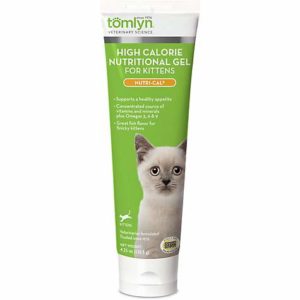
If you have a cat that is suffering from a taurine deficiency, some times supplements are the best way to quickly get their taurine levels back to normal. If you have a cat that is lethargic and is showing signs of weakness, providing a supplement is a smart course of action. Or in a worst case scenario such as vision loss due to retinal deterioration. You may at least slow any damage from progressing into full blindness.
If you feel as though your cat is not getting enough taurine, or you want to play it safe. You can find taurine in a whole host of treats, additives, and fortified foods.

